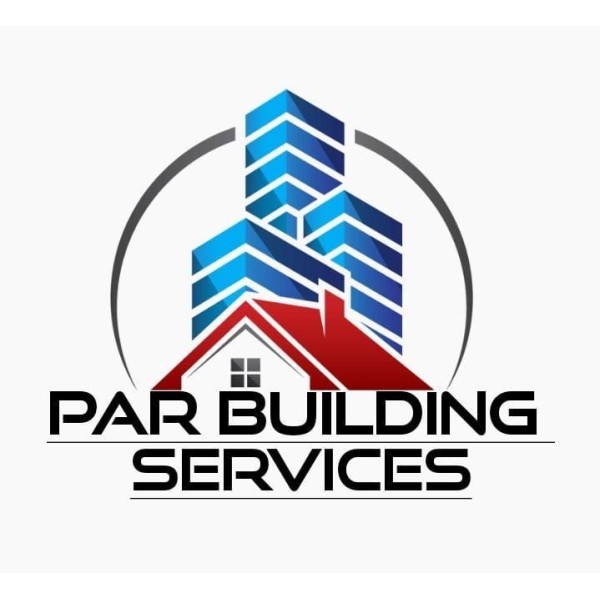Loft Conversions in Chippenham
Welcome to Combined Construction Solutions Limited, your trusted partner for all construction needs in North Wroughton and across Wiltshi... read more »
Welcome to Dodeca Design & Build Ltd, the premier choice for all your construction and renovation needs in Swindon and throughout the pic... read more »
Welcome to SAWC, your go-to experts for all your home improvement needs in Blunsdon St Andrew and across the beautiful county of Wiltshir... read more »
Atley Construction Ltd, a family-run business based in the charming town of Tetbury, is your go-to solution for all cons... read more »
Crown Carpentry And Building Limited is a premier choice for those seeking top-notch builders and tradespeople in
Welcome to Crow's Nest Building Services, your premier choice for builders, extension builders, bathroom fitters, kitchen fitters, loft c... read more »
PAR Building Services, nestled in the vibrant area of Nine Elms, is your go-to expert for all things construction in Wil... read more »
Innovation Building And Maintenance Ltd is a premier choice for all your construction and renovation needs in Ev... read more »
AD Carpentry & Developments is your go-to solution for all your building needs in the picturesque region of Wilt... read more »
Welcome to Faby Construction Ltd, your premier choice for builders in Upper Stratton, proudly serving the entire Wiltshire region. Specia... read more »
Welcome to NHBC, your trusted partner for all buildin... read more »
Corsham Loft Conversions stands as a... read more »
Welcome to AW Builder's, your trusted partner for all... read more »
Welcome to EM Building and Landscaping, your trusted... read more »
Welcome to EM Building and Landscaping, your trusted... read more »
M.T.S. Builders is a renowned buildi... read more »
Welcome to Elliott Brothers, your premier choice for... read more »
Welcome to ROKA, your premier choice for Builders, Ex... read more »
Welcome to GPM, your trusted partner for all building... read more »
Search Loft Conversions in places nearby
Understanding Loft Conversions in Chippenham
Loft conversions in Chippenham are becoming increasingly popular as homeowners seek to maximise their living space without the hassle of moving. This charming town in Wiltshire offers a unique blend of historical architecture and modern living, making it an ideal location for such home improvements. Whether you're looking to add an extra bedroom, a home office, or a playroom, a loft conversion can be a cost-effective solution. Let's delve into the various aspects of loft conversions in Chippenham, from planning to execution, and explore how you can transform your unused attic space into a functional and stylish area.
Benefits of Loft Conversions
Loft conversions offer numerous benefits that make them an attractive option for homeowners. Firstly, they can significantly increase the value of your property. By adding an extra room or two, you can enhance your home's appeal to potential buyers. Additionally, loft conversions provide more living space without the need to extend your home's footprint, which is particularly advantageous in areas with limited outdoor space.
Moreover, loft conversions can be tailored to suit your specific needs. Whether you require a quiet study, a guest bedroom, or a creative studio, the possibilities are endless. This flexibility allows you to create a space that complements your lifestyle and enhances your home's functionality.
Types of Loft Conversions
There are several types of loft conversions to consider, each with its own set of advantages. The most common types include:
- Velux Loft Conversion: This type involves installing Velux windows into the existing roof structure, providing natural light and ventilation. It's often the most cost-effective option as it requires minimal structural alterations.
- Dormer Loft Conversion: A dormer conversion extends the existing roof to create additional headroom and floor space. This type is popular for its versatility and ability to accommodate various room layouts.
- Hip-to-Gable Loft Conversion: Ideal for semi-detached or detached homes, this conversion involves extending the hip end of the roof to create a gable wall, resulting in more usable space.
- Mansard Loft Conversion: This option involves altering the roof structure to create a flat roof with steeply sloping sides. It's often used for period properties and offers the most space but can be more expensive.
Planning Permission and Building Regulations
Before embarking on a loft conversion in Chippenham, it's essential to understand the planning permission and building regulations involved. In many cases, loft conversions fall under permitted development rights, meaning you won't need planning permission. However, there are exceptions, such as if your property is in a conservation area or if the conversion significantly alters the roof's appearance.
Building regulations, on the other hand, are mandatory for all loft conversions. These regulations ensure that the conversion meets safety and structural standards, covering aspects such as fire safety, insulation, and staircase design. It's crucial to work with a qualified architect or builder who can guide you through the process and ensure compliance with all necessary regulations.
Choosing the Right Professionals
Selecting the right professionals for your loft conversion is vital to ensure a successful outcome. Start by researching local architects and builders with experience in loft conversions. Look for reviews and testimonials from previous clients to gauge their reliability and quality of work.
Once you've shortlisted potential candidates, arrange consultations to discuss your project in detail. This is an opportunity to assess their expertise, ask questions, and obtain quotes. Remember, the cheapest option isn't always the best; prioritise quality and experience to avoid costly mistakes down the line.
Designing Your Loft Conversion
The design phase is where your vision for the loft conversion comes to life. Consider how you intend to use the space and what features are essential for your needs. For instance, if you're creating a bedroom, you'll need to think about storage solutions and lighting. If it's a home office, consider ergonomic furniture and internet connectivity.
Work closely with your architect to develop a design that maximises the available space while ensuring comfort and functionality. They can provide valuable insights into optimising natural light, ventilation, and insulation, all of which contribute to a pleasant living environment.
Budgeting for Your Loft Conversion
Budgeting is a crucial aspect of any home improvement project. The cost of a loft conversion in Chippenham can vary depending on factors such as the type of conversion, the size of the space, and the materials used. On average, you can expect to spend between £20,000 and £50,000.
To avoid unexpected expenses, create a detailed budget that includes all potential costs, from design and planning to construction and finishing touches. It's also wise to set aside a contingency fund for any unforeseen issues that may arise during the project.
Construction Process
Once the design and planning stages are complete, the construction phase begins. This involves several key steps, starting with preparing the site and ensuring all necessary permits are in place. The construction team will then carry out structural alterations, such as reinforcing the floor and installing new windows or dormers.
Throughout the construction process, regular communication with your builder is essential to ensure the project stays on track and any issues are promptly addressed. Depending on the complexity of the conversion, construction can take anywhere from six to twelve weeks.
Finishing Touches
The final stage of your loft conversion involves adding the finishing touches that make the space truly yours. This includes painting and decorating, installing flooring, and fitting any necessary fixtures and furnishings. Consider how you can personalise the space with colours, textures, and accessories that reflect your style and taste.
Don't forget about practical elements such as lighting and heating. LED lights are an energy-efficient option that can create a warm and inviting atmosphere, while underfloor heating can provide comfort during colder months.
Maximising Space and Storage
One of the challenges of loft conversions is making the most of the available space, particularly if the roof has sloping ceilings. Clever storage solutions can help you maximise the usable area and keep the space organised and clutter-free.
Consider built-in wardrobes, shelves, and drawers that utilise awkward corners and alcoves. Multi-functional furniture, such as a sofa bed or a desk with storage, can also be a practical addition. By thinking creatively, you can ensure your loft conversion is both stylish and functional.
Energy Efficiency and Insulation
Energy efficiency is an important consideration for any loft conversion. Proper insulation is key to maintaining a comfortable temperature and reducing energy bills. Ensure that the roof, walls, and floors are adequately insulated to prevent heat loss.
Double-glazed windows can also enhance energy efficiency by minimising drafts and retaining heat. Additionally, consider installing energy-efficient heating systems and appliances to further reduce your carbon footprint.
Common Challenges and Solutions
While loft conversions offer many benefits, they can also present challenges. One common issue is limited headroom, which can restrict the types of rooms you can create. To address this, consider a dormer or mansard conversion, which can provide additional height and space.
Another challenge is ensuring adequate natural light and ventilation. Skylights and roof windows are effective solutions that can brighten the space and improve air circulation. If privacy is a concern, opt for frosted or tinted glass.
Legal and Safety Considerations
Ensuring your loft conversion complies with legal and safety standards is paramount. Building regulations cover various aspects, including structural integrity, fire safety, and accessibility. It's essential to work with professionals who are knowledgeable about these requirements and can ensure your conversion meets all necessary standards.
Fire safety is particularly important, as loft conversions can alter the escape routes in your home. Ensure that smoke alarms are installed and that the staircase provides a safe and accessible exit in case of an emergency.
Case Studies of Successful Loft Conversions in Chippenham
To inspire your own project, consider some case studies of successful loft conversions in Chippenham. One homeowner transformed their attic into a spacious master bedroom with an en-suite bathroom, complete with a dormer window that offered stunning views of the surrounding countryside.
Another family converted their loft into a bright and airy playroom for their children, incorporating clever storage solutions and vibrant decor to create a fun and functional space. These examples demonstrate the potential of loft conversions to enhance your home and improve your quality of life.
Frequently Asked Questions
- Do I need planning permission for a loft conversion in Chippenham? In most cases, loft conversions fall under permitted development rights, but it's best to check with your local council.
- How long does a loft conversion take? The construction phase typically takes between six to twelve weeks, depending on the complexity of the project.
- What is the cost of a loft conversion in Chippenham? Costs can range from £20,000 to £50,000, depending on the type and size of the conversion.
- Can I convert any loft? Most lofts can be converted, but factors such as headroom and roof structure may affect the feasibility.
- How can I ensure my loft conversion is energy efficient? Proper insulation, double-glazed windows, and energy-efficient heating systems can enhance energy efficiency.
- What are the common types of loft conversions? The most common types include Velux, dormer, hip-to-gable, and mansard conversions.
Loft conversions in Chippenham offer a fantastic opportunity to expand your living space and add value to your home. By carefully considering your needs, budget, and design preferences, you can create a beautiful and functional space that enhances your lifestyle. With the right professionals and a clear plan, your loft conversion can be a rewarding and successful project.
Send a message














